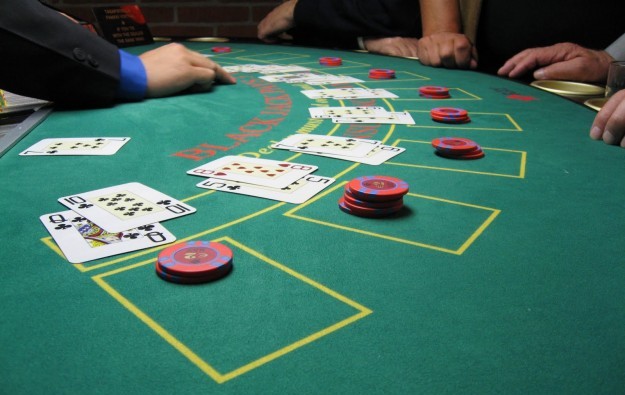Japan casino law effective Dec 26, headwinds remain
Dec 26, 2016 Newsdesk Japan, Latest News, Top of the deck

Legislation making legal casino gambling in Japan came officially into effect on Monday (December 26), reported the Kyodo news agency.
The measure – referred to by its supporters prior to its enactment as the Integrated Resorts Promotion Bill – got the final approval from the country’s parliament, a body known as the Diet, on December 14. That was the last day of the autumn’s extraordinary session of the legislature.
Banking group Morgan Stanley said in a December 15 note that any casino venue or venues in Japan might only open after the year 2021 following a second piece of legislation.
“Japan will have to pass the implementation bill which may take six to 12 months and then undergo the RFC [request for concept] and RFP [request for proposal] process, which could at least take six months. This pushes the opening of the first casino to at least 2021/22,” said the institution.
The second bill will decide details including the number and location of any gaming resorts and their regulation.
Brokerage Union Gaming Securities Asia Ltd said in a note on July 28 that there might only be two licences – for large casino resorts – at the first stage of liberalisation following legalisation, rather than a previously-mooted idea of a licence each for two large properties and a licence each for two smaller regional ones.
The major cities of Tokyo, Yokohama and Osaka have been mentioned in media reports and analysts’ notes as leading contenders for large-scale casino resorts.
Headwinds remain for the industry in terms of Japanese public opinion, according to Kyodo and other news outlets.
Following the successful passage of the enabling bill through the two-chamber Diet, a Kyodo poll suggested public support for Japanese Prime Minister Shinzo Abe’s Liberal Democratic Party-led cabinet had fallen by nearly six percentage points compared to November. The news outlet said its poll indicated a factor was public concern about gambling addiction in the community.
According to a survey by Japan’s public broadcaster NHK – cited in a December 14 report by China’s Xinhua news agency – only 12 percent of respondents were in favour of scrapping the former ban on casinos, while 44 percent were opposed. The rest, according to the survey results, were undecided.
On December 19, the Nikkei Asian Review news outlet reported that – in the wake of the casino bill’s passage – Japan’s governing coalition would consider safeguards against gambling addiction. Such measures were said to include ensuring that anyone deemed ‘at-risk’ would have their access to casino premises limited.
A number of Japanese politicians and news outlets in the country have previously referred to a Singapore-style system of safeguards for any Japanese casino industry. In Singapore, citizens and permanent residents of the city-state wishing to enter the two casino resorts there are required to present identification and pay a levy either for 24-hour access or a 12-month permit.
Japan’s pro-casino politicians have suggested such resorts could boost the number of inbound international visitors to Japan.
Japan had 19.7 million international tourism arrivals in 2015, according to the Japan National Tourism Organization. In the same period, Macau – the world’s largest single jurisdiction for casinos in gross gaming revenue terms – had 30.7 million tourism arrivals, including mainland Chinese visitors.
Brokerage CLSA Ltd has estimated that eventually a Japanese casino industry could generate US$40 billion or more in annual revenue, Bloomberg reported.
Related articles
-
 CLSA trims forecast for Macau GGR,...
CLSA trims forecast for Macau GGR,...Jul 17, 2024
-
 Melco to get 50pct casino EBITDA at Sri...
Melco to get 50pct casino EBITDA at Sri...Jul 10, 2024
More news
-
 Donaco EBITDA up y-o-y to above US$4mln...
Donaco EBITDA up y-o-y to above US$4mln...Jul 26, 2024
-
 HK listed Palasino upgrades Czech...
HK listed Palasino upgrades Czech...Jul 26, 2024
Latest News
Jul 26, 2024
Border-casino operator Donaco International Ltd has achieved a 164.17-percent year-on-year increase in its latest quarterly group earnings before interest, taxation, depreciation and amortisation...Sign up to our FREE Newsletter
 (Click here for more)
(Click here for more)
Pick of the Day
”We’ve got more traction outside of Macau at the moment. But Macau’s going be a bigger focus for us”
David Punter
Regional representative at Konami Australia
Most Popular
 Sheraton brand to exit Londoner Macao, to be Londoner Grand July 25, 2024
Sheraton brand to exit Londoner Macao, to be Londoner Grand July 25, 2024  Macau regulator probes unlicensed gaming agents July 24, 2024
Macau regulator probes unlicensed gaming agents July 24, 2024  Philippines gives 20k aliens in POGOs 60 days to leave July 25, 2024
Philippines gives 20k aliens in POGOs 60 days to leave July 25, 2024  Philippines-listed DigiPlus says not affected by POGO ban July 24, 2024
Philippines-listed DigiPlus says not affected by POGO ban July 24, 2024  Sands China 2Q EBITDA down q-o-q amid low hold, renovation July 25, 2024
Sands China 2Q EBITDA down q-o-q amid low hold, renovation July 25, 2024






